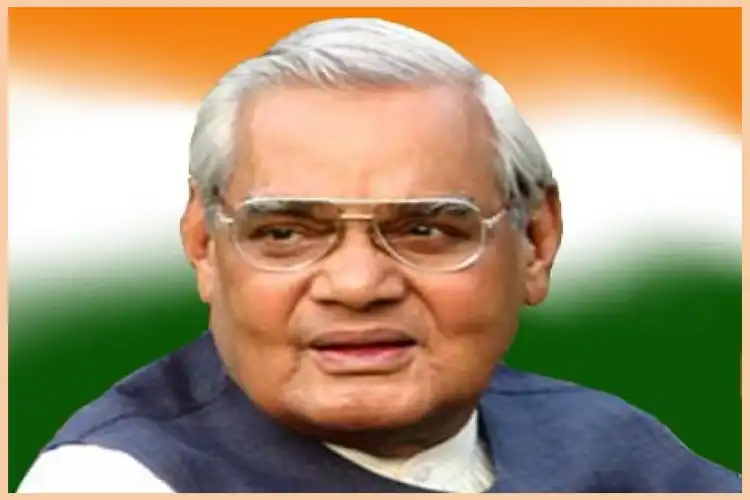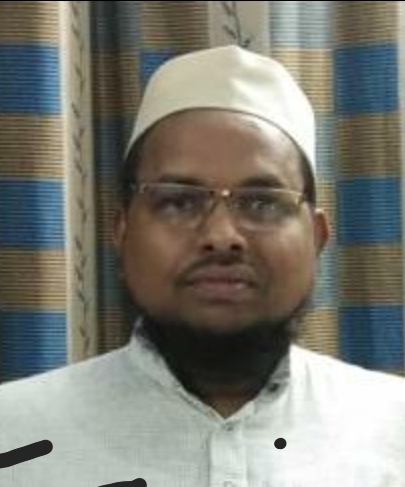
 Obaidur Rahman Nadwi
Obaidur Rahman Nadwi
The first time on March 28, 1999, I saw Atal Bihari Vajpayee in Nadwatul Ulama, Lucknow when he called on prominent Islamic scholar S. Abul Hasan Ali Nadwi to inquire about his health. I still remember the then beautiful sight of how he greeted students of Nadwa with his bright smiling face. I was then a student in the seminary.
Atal Bihari Vajpayee, the three-time Prime Minister and an icon of modern India passed away in New Delhi on August 16, 2018, after a long battle with illness. He was 93. He was the first non-congress Prime Minister to complete a full term in office at the head of a coalition he stitched together with his moderate politics and charismatic appeal. A bachelor, Vajpayee is survived by his foster daughter Namita Bhattacharya.
It would not be an exaggeration to say that Atalji’s death was mourned by the nation just like that of Pandit Jawaharlal Nehru, the first Prime Minister of free India.
He was born on Christmas Day, the 25th December in 1924 at Gwalior. His father Krishna Bihari Vajpayee was a school teacher. Atal Bihari Vajpayee completed his graduation in Gwalior itself. He did his post-graduation in Political Science from Kanpur.
It is interesting to note that Atalji had come to Kanpur in 1946 to pursue MA in political science and L.L.B. from the DAV College. He lived in the hostel. His father, who had retired as the district inspector of school, (Dios), also joined LLB with his son Atalji at the DAV College. Both father and son lived in the same hostel room. Initially, they were in the same section but were later allotted a separate section. Their sections were changed because whenever Atalji’s father did not attend the class, the teacher would ask him where his father was and when he could not attend the class, the teacher would ask his father about Atalji. Students laughed over such questions.
This multifaceted genius Vajpayee can be taken for discussion in various dimensions e.g. Vajpayee as a politician, Vajpayee as a journalist, Vajpayee as a poet, Vajpayee as an orator, Vajpayee as an editor, Vajpayee as a social activist, Vajpayee as a debater, Vajpayee as an author even Vajpayee as a spokesman for the plight of the poor, etc.
He started his career as a journalist. He worked as a journalist with RSS magazine “Rashtaradharam”. In later years, he edited “Panchjanya”, “Chetna Saptahik” from Varanasi, Dainik Swadesh from Lucknow, and Vir Arjun from Delhi. He took his first step in politics in 1955 when he contested for the Lucknow seat and was defeated. Later on, he won from this very seat and reached the Prime Minister’s position.
After the emergency, he was appointed External Affairs Minister in the cabinet of Prime Minister Moraji Desai and was credited with making Indo-Pak relationship cordial. During his tenure, he also set a record by becoming the first ever-Indian Minister to have addressed the UN General Assembly in Hindi. He was awarded India’s second-highest civilian award Padama Vibhusham in 1992 and in 1994 he won the best parliamentarian award. In 1993, he again scored a diplomatic victory when he led the Indian delegation to the UN Human Rights Couincil Meeting in Geneva. He was also a member of India’s United Nations General Assembly delegation for seven sessions. This great genius was conferred the highest honour of the country ‘Bharat Ratna’ in 2015.
Vajpayee was a prolific writer. He authored several books of both prose and poetry. Some of his major publications are as follows.
Prose
▪ National Integration (1961)
▪ New Dimensions of India’s Foreign policy (1979)
▪ Gathbandhan ki Rajneeti
▪ Kucha Lekha, Kucha Bhashana (1996)
▪ Bindu-Bindu Vicara (1997)
▪ Decisive Days (1999)
▪ Sankalp-kaal (1999)
▪ Vicara-Bindu (Hindi Edition, 2000)
▪ India’s Perspectives on ASEAN and the Asia-Pacific Region (2003)
▪ Na Dainyam Na Palayanam
▪ Nayi Chunouti: Naya Avasar
Poetry
▪ Kaidi Kaviraj Kundalian
▪ Amar Aag Hai (1994)
▪ Meri Ikyavana Kavitaem (1995) Some of these poems were set to music by Jagjit Singh for his album Samvedna.
▪ Kya khoya kya paya: Atal Bihari Vajpayee, Vyaktitva Aur Kauitaem (1999)
▪ Values, Vision & Verses of Vajpayee: India’s Man of Destiny (2001)
▪ Twenty-One poems (2003)
▪ Chuni Hui Kavitayein (2012)
He achieved such accomplishments during his Prime-ministership, as will have been written in letters of gold in the history of India. He was an invincible symbol of Indian culture. He followed Indian ideals throughout his life.
To win by love every body’s heart was a part of his nature. As we have seen to what extent he gained the confidence of the people and enjoyed their trust and affection that there was a feeling of having been left desolate and forlorn following his death all over the country.
He played a leading role in promoting and mobilizing the BJP in India. He gave BJP its first light. Later on, he shone like the pole star in the political arena. It was Atal Bihari Vajpayee who strove at the grass root level and enhanced party’s position in the country. Meghnad Desai has rightly said, “His greatest contribution was to bring the Jana Sangh in from the cold neglect of the Congress establishment and make the BJP a widely accepted party. His success in 1998 made the BJP the alternative to the Congress, building a two-party democracy after 50 years. To come from mere two seats in 1984 to 182 in 1998 must rank as the outstanding achievement of his leadership.” He further said, “If there is one word, which comes to mind about Atal Bihari Vajpayee, it is sabhyata (Culture-civilisation). Of all the political leaders who have reached heights in India, he was the most gracious, the best spoken in prose or poetry.”
In the words of Ram Madhav, Atalji practiced a version of politics that is rare to find – a politics in which love of the nation took precedence over love of power; in which feelings, sentiments, and emotions found a place in the world of cut-throat competitive politicking; in which dignity and respect for everyone big and small, friend and adversary alike were the way, not disrespect and rejection, abuse and trolling.
For purity of tongue, extending thankfulness, tenderness of feelings, loving actions, and large-heartedness in behavior, Atalji will be remembered always. I cannot help mentioning an event of his thankfulness. Noted columnist Karan Thapar stated that during the early part of his prime minister-ship, Rajiv Gandhi had learned that Atalji had a kidney problem and needed treatment. So he summoned him to the Prime Minister’s Office in Parliament and said that he intended to make Atalji a member of the Indian delegation to the United Nations and hoped that he would accept, go to New York, and get treated. And that’s what Atalji did. As he told me, this possibly saved his life and now, after Rajiv’s sudden and tragic death, he wanted to make the story public as a way of saying thank you.
Strangely, he had been an active member of the RSS throughout his life; nevertheless, he always kept himself aloof from such statements and speeches which may create communal feelings in the country. Besides, he always avoided issues that tend to chaos. One has rightly described that Atalji was as the BJP’s Jawaharlal Nehru.
All said and done Atalji is precisely fit of this couplet ( Maut who maut hai jis per zamana kare afsos, yun duniya mein sabhi aye hain jane ke liye”. (The world grieves the loss of a great personality, though end comes to everybody).
In a nutshell, to understand and evaluate his universal humanism and idealism given to the political environment will be the true tribute, offering to him. ❑
(Dr.Obaidur Rahman Nadwi is a Faculty Member, Darul Uloom Nadwatul Ulama,Lucknow)
